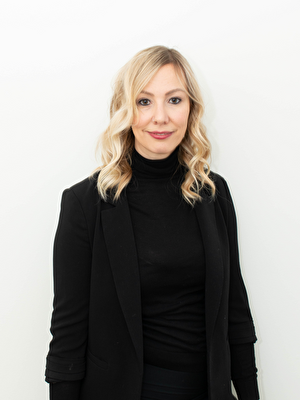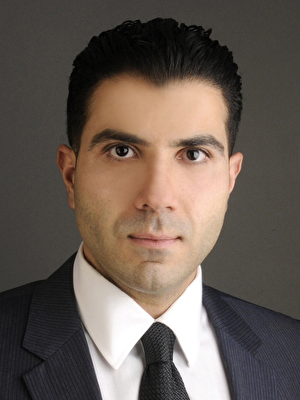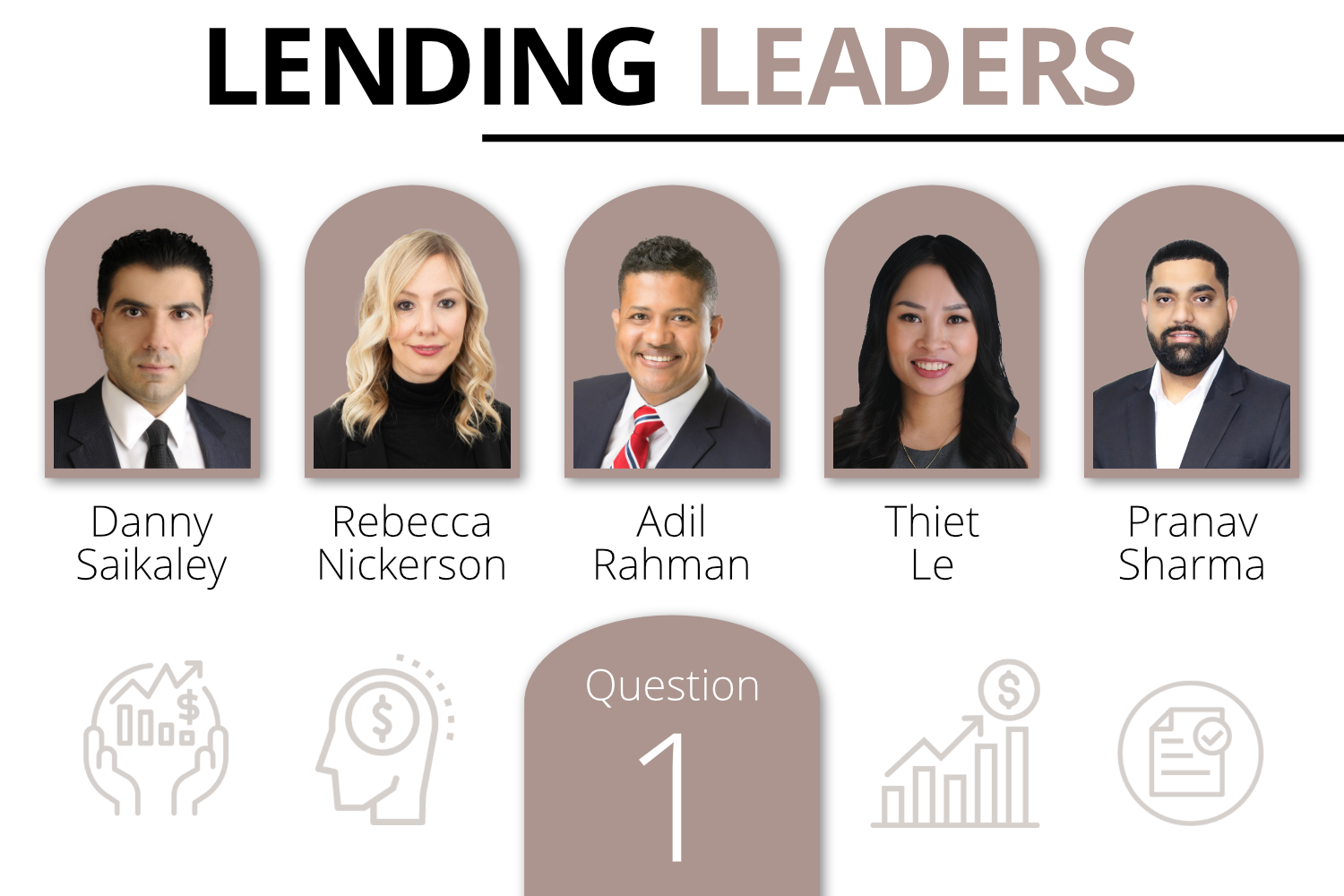Welcome to the series where we ask 5 lending professionals for their take on the current market challenges and opportunities
AUTHOR(S):
Adil Rahman, Danny Saikaley,
Rebecca Nickerson, Pranav Sharma,
Thiet Le
TOPIC(S):
Mortgage Advice, Variable vs Fixed Rate, Market Strategy, Ottawa Real Estate, Investment Properties, Rentals, Advice, Obtaining Financing, Preparing to Buy, Pre-Approvals
LOCATION(S):
Ottawa, Ontario
PUBLISHED:
February 15, 2023 8:00am EDT
ORGANIZATION(S):
Adil Rahman Mortgage Team, Mortgage Brokers Ottawa, Mortgage Forces, Pegasus Mortgage Lending, The Mortgage Advisors
Which type of interest rate would you recommend in the current market, variable or fixed?
Rebecca Nickerson – The Mortgage Advisors
Rebecca Nickerson
The Mortgage Advisors

“With a passion for real estate and expertise in finance, I am committed to working with you to find a mortgage tailored to your needs and lifestyle. I have access to a variety of lenders, assuring that we find the right fit.”
“Variable of fixed would depend on the client. Each person’s situation is unique. What are the client’s long-term and short-term goals? Can they commit to a longer mortgage term or would they perhaps need to get out of the mortgage earlier than the term? What are the client’s risk tolerances, and would a fluctuating interest rate keep them up at night?
Fixed rates for shorter terms are likely what I would suggest for those who are risk-averse and confident they can last the term of the mortgage. It is doubtful that rates will remain high for long periods of time so it is nice to have a shorter term or some flexibility to take advantage of better rates when they come back down.”
Pranav Sharma – Pegasus Mortgage Lending
Pranav Sharma
Pegasus Mortgage Lending

“I am a mortgage agent with a passion for helping people achieve their dream of homeownership. I have a deep understanding of the various home loan options available and will work closely with you to find the perfect mortgage solution to fit your needs and financial situation.”
“A fixed interest rate provides stability and predictability, as the rate remains constant for the term of the mortgage. This can be a good option for those who prioritize budgeting and prefer a set monthly payment.
On the other hand, a variable interest rate is linked to a benchmark rate, such as the prime rate, and can fluctuate over the term of the mortgage. This type of interest rate typically starts lower than a fixed rate, but there is a risk that it could increase over time.
Personally, I would recommend a fixed rate for a two or three-year term according to the current market and then transition back to a variable rate.”
If you are a Mortgage Professional and would like to contribute to the FCA resource section by writing articles, blogging, creating videos or providing answers to our questionnaires, please contact us at:
Thiet Le – Mortgage Brokers Ottawa
Thiet Le
Mortgage Brokers Ottawa

“I always strive to do an outstanding job. I have expert knowledge and a passion for the mortgage industry that drives me to deliver the best results possible, the best service with care, integrity to as many people who are in need of mortgage solutions.”
“Both variable and fixed interest rates have their own benefits and drawbacks, and the right choice depends on the individual’s financial goals, risk tolerance, and market conditions. I would recommend for the individual to have an assessment with a Mortgage Agent before deciding.”
Adil Rahman – Adil Rahman Mortgage Team
Adil Rahman
Adil Rahman Mortgage Team

“I’m a Bilingual Accredited Mortgage Professional committed to helping my clients access mortgage solutions; regardless of whether you are looking to buy your first or fifth home or refinance your current home.”
“The choice between a variable or fixed interest rate depends on a number of factors, including your personal financial situation and your risk tolerance. A fixed interest rate is just that – fixed. This means that your interest rate and monthly payments will remain the same for the life of the loan, regardless of changes in the market interest rates. This can provide stability and predictability, making it easier to budget and plan for the future. On the other hand, a variable interest rate can change over time, often in response to changes in the market. This means that your monthly payments may go up or down, and it can be more difficult to predict what your payments will be in the future.
If interest rates are low, a variable interest rate loan may be more attractive as your interest rate (and monthly payments) could potentially go down. On the other hand, if interest rates are rising, a fixed-interest rate loan may be a better option as it would provide stability and predictability, even if it means paying a slightly higher interest rate. Ultimately, the best choice for you will depend on your personal financial situation, your risk tolerance, and your long-term financial goals. It’s important to carefully consider all of your options and to speak with a financial advisor or loan specialist if you have any questions or concerns.”
Danny Saikaley – Mortgage Forces
Danny Saikaley
Mortgage Forces

“Danny Saikaley, President, entered the financial service industry in 2005. He has worked and consulted for major banks in Canada. Mr. Saikaley is an active supporter of Canadian military families through philanthropy, direct cooperation, and financial guidance.”
“Fixed on a shorter term or a variable with a fixed payment like the TD variable option plus a recommendation to increase the payment amount right away if they are able to. A fixed interest rate is predictable, and you know exactly what you’ll be paying each month. A variable interest rate, on the other hand, can change over time and can be more volatile.
If you prefer stability and predictability, a fixed interest rate may be a better option for you. If you’re willing to take on a bit more risk for the possibility of a lower rate, a variable interest rate might be a good choice.
It’s also worth considering a hybrid option, such as a TD variable option with a fixed payment, as this can provide some stability while still allowing you to benefit from potential rate decreases.
If you have the ability to increase your payment amount right away, this can be a good strategy to pay off your debt faster and reduce the overall interest paid over the life of the loan. However, it’s important to make sure that you’re comfortable with the increased payment amount and that it fits within your budget.”











